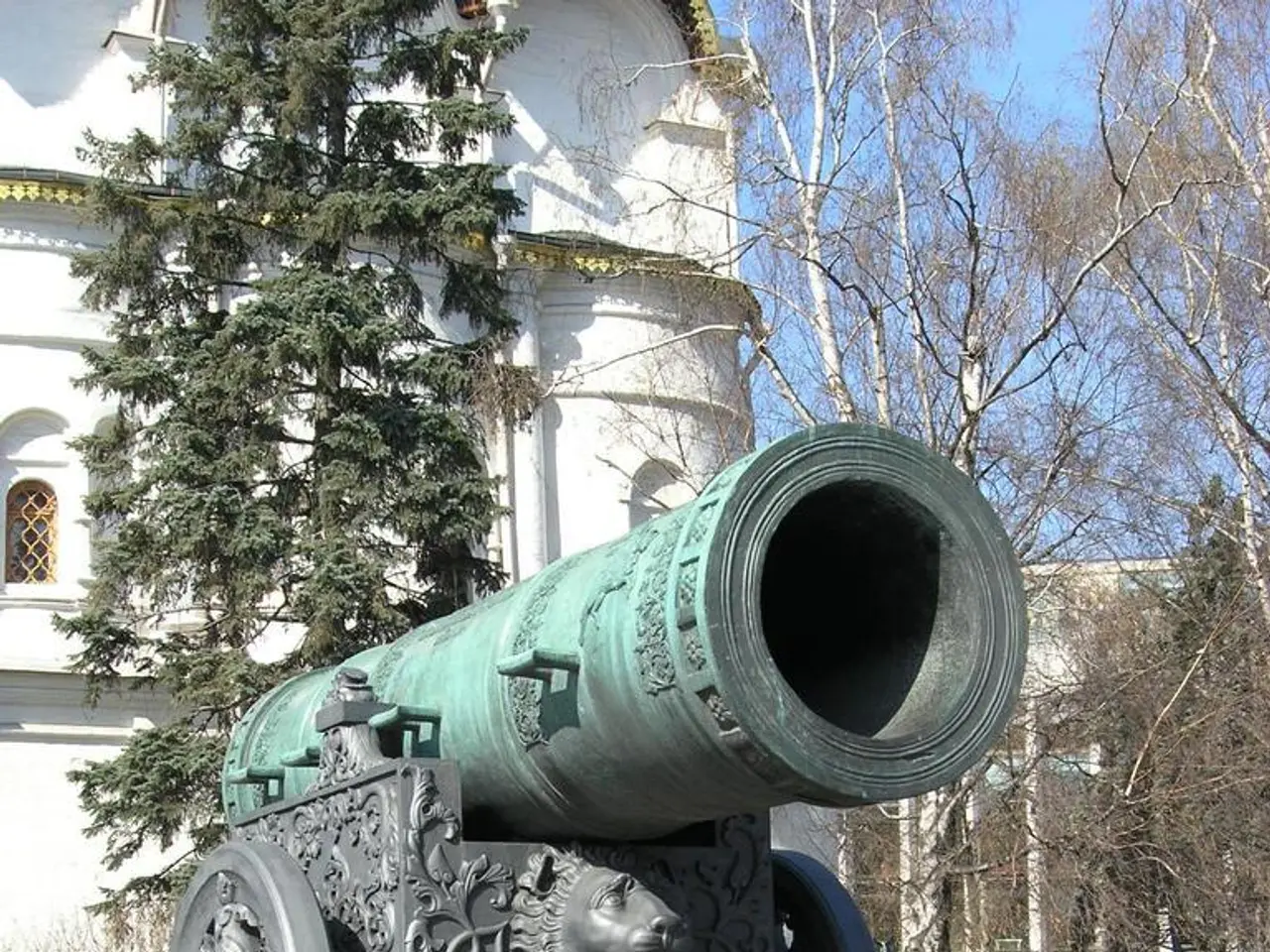Running out of gas: bonds face fuel depletion.
Last week saw significant movements in the Russian financial market, with the Index of Moscow Exchange Government Bonds (RGBI) experiencing a 1.2% decline, marking losses not seen since April 2025. This downturn was primarily due to inflation risks, as bonds also took a hit.
In the commodities market, gasoline prices increased by 0.6%, and diesel by 0.1%, contributing to inflationary pressures. Meanwhile, the Russian stock market closed at 2899 points last week, with a symbolic rise of 0.1%. Trading volumes were low, with only 35 billion rubles traded on Thursday.
The sell-off in government debt is due to investors pricing in expectations of a key rate cut, awaiting geopolitical signals, and banks losing interest in holding long-term issues, according to Vladimir Chernov, an analyst at Freedom Finance Global. Bonds with maturities of 4.5-6.5 years are experiencing the most significant losses, with their yield exceeding 14% per annum. On the other hand, Ministry of Finance bond issues with maturities of 1-3.5 years can now be bought at a yield of just above 13.5%.
Alexey Antonov, the head of investment consulting at Alor Broker, does not expect a faster normalization of monetary policy, as hoped for by some investors. He does not rule out that the Bank of Russia may raise the "key rate" by only 1 p.p., not 2 p.p., as the market expected just 10 days ago. Alexei Kovalov noted that the papers are still overbought, as evidenced by the spread between the current key rate and the yield curve of OFZs reaching 4 basis points, close to its historical maximum. Alexey Antonov, therefore, does not recommend making new purchases of OFZs for investment purposes due to potential future inflationary pressures.
Looking ahead, analysts believe that geopolitical news, the results of Putin's visit to China, or inflation data could push the market out of its current range at the beginning of September. Vladimir Chernov noted that Gazprom, Rosneft, and Novatek could benefit from Putin's visit to China, and other oil and gas projects such as 'Vostok Oil' by Rosneft or Novatek's LNG projects could also interest Chinese partners. However, there was no concrete progress on resolving the conflict or lifting sanctions following the meeting between the leaders of Russia and the US in Alaska.
The Russian President, Vladimir Putin, is expected to visit China next week, with the visit culminating in his participation in the military parade in Beijing on September 3, 2025. The timing for any potential negotiations about the "Power of Siberia 2" gas pipeline project has not been explicitly mentioned in the available sources. Sergei Kauhman, analyst at FG 'Finam', suggested that Putin's visit could lead to progress in negotiations over the 'Power of Siberia 2' gas pipeline. Albert Koroyev, head of equity analysts at BCS World of Investments, explained that the market stagnation is due to a lack of significant geopolitical news and seasonal factors.
In conclusion, the Russian financial market is currently experiencing a period of uncertainty, with inflationary pressures and geopolitical factors playing a significant role in shaping market trends. Investors are advised to exercise caution and consider the potential risks before making investment decisions.
Read also:
- Understanding Hemorrhagic Gastroenteritis: Key Facts
- Stopping Osteoporosis Treatment: Timeline Considerations
- Trump's Policies: Tariffs, AI, Surveillance, and Possible Martial Law
- Expanded Community Health Involvement by CK Birla Hospitals, Jaipur, Maintained Through Consistent Outreach Programs Across Rajasthan








